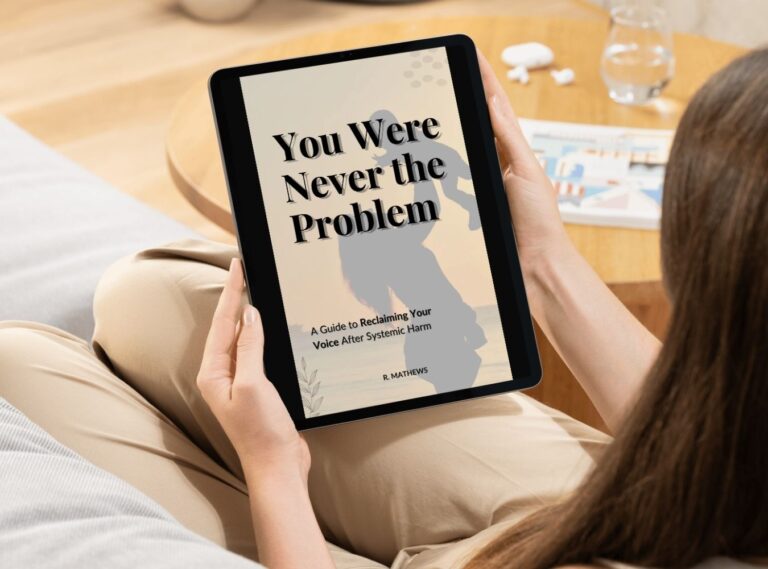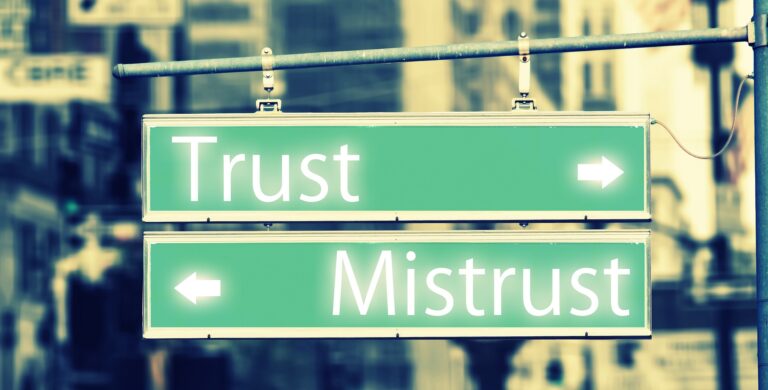“I Thought Love Would Save Us”: Unpacking the Early Warning Signs of Abuse
I thought love would be enough to change him, that if I just loved harder, forgave more, things would get better. But love was never the problem. Control was.
The early warning signs of abuse don’t always look like danger. They often show up as jealousy masked as love, concern twisted into control, or criticism disguised as care. By the time you see it clearly, you may already feel isolated, ashamed, or convinced it’s your fault.
But missing the signs doesn’t mean you failed. It means you were surviving. And survival, in all its forms, is never something to be ashamed of.
What Are the Early Warning Signs of Abuse?
Abuse rarely begins with bruises or threats. It often starts in subtle, confusing ways with behavior that feels intense, protective, or even romantic. Recognizing these early warning signs of abuse can be difficult, especially when love and harm are intertwined.
Here are some common signs to be aware of:
- Moving too fast emotionally or relationally: Intense declarations of love, pressure to move in together quickly, or talk of “forever” early on can be signs of love bombing, a tactic used to gain control.
- Isolation from friends and family: They may discourage or forbid you from seeing certain people, often under the guise of “they’re a bad influence” or “they don’t really care about you.”
- Extreme jealousy or possessiveness: What starts as “I just care about you” can become monitoring your whereabouts, accusing you of cheating, or demanding constant check-ins.
- Criticism that chips away at your self-esteem: Subtle put-downs, mocking your dreams, or criticizing how you talk, dress, or think, all can slowly erode your confidence and autonomy.
- Controlling your decisions, finances, or appearance: Whether it’s telling you what to wear, how to spend money, or questioning every choice you make, this control limits your independence.
- Making you feel guilty for asserting boundaries: You might hear, “If you really loved me, you’d…” or “You’re so selfish” when you try to express needs or set limits.
- Gaslighting or denying your reality: They may twist facts, deny things they said or did, or make you feel like you’re overreacting, causing you to question your memory and sanity.
- Unpredictable mood swings or anger: Walking on eggshells becomes normal. Their moods may change suddenly, and you’re often blamed for “setting them off.”
- Blaming others for their behavior: Whether it’s an ex, their childhood, or stress at work, nothing is ever their fault. This deflects responsibility and keeps you in the role of caretaker or fixer.
Emotional Manipulation in Relationships
Emotional manipulation in relationships can be so subtle that it feels like confusion instead of cruelty. It often shows up as guilt, obligation, or fear disguised as love. You might be told you’re “too sensitive” when hurt, or blamed for their bad moods and outbursts. Over time, you start apologizing for things that aren’t your fault, bending your truth to avoid conflict, or shrinking yourself to stay safe.
Gaslighting is one of the most powerful tools of emotional manipulation. It can make you question your memory, judgment, and even your sanity. You begin to doubt your instincts, the very inner compass that could help you leave. Another tactic is love bombing followed by devaluation. One moment you’re their entire world; the next, you’re being ignored, criticized, or punished with silence. These cycles keep you off balance and deeply dependent on their approval for a sense of worth.
What’s important to know is that these behaviors are not “just relationship problems.” They are patterns of power and control. And the longer you’re exposed to them, the harder it becomes to see yourself clearly, which is exactly how manipulation works.
Toxic Relationship Red Flags We Often Miss
Many red flags don’t scream danger. They whisper doubt, guilt, and discomfort. Survivors often blame themselves for not recognizing abuse sooner, but the truth is: abusive behavior is often masked as love, protection, or passion. Here are some of the toxic relationship red flags we often overlook:
- Jealousy framed as devotion
“I just don’t want to lose you” sounds romantic, but it can quickly turn into suspicion, accusations, and attempts to control your every move. - Disrespecting your boundaries, then apologizing just enough
They push your limits, ignore your “no,” or guilt you into saying “yes,” then offer a half-hearted apology to keep you hooked. - Making you the “problem” for their behavior
They explode in anger or give the silent treatment, then say it’s because you made them feel disrespected, insecure, or “crazy.” - Withholding affection as punishment
Affection and attention become rewards you must earn and are often withheld when you express a need, boundary, or disagreement. - Constant monitoring or “checking in” that feels suffocating
At first, it may seem sweet that they always want to know where you are, but it slowly becomes surveillance, not care. - Putting down your dreams, goals, or passions
They subtly mock your ambitions, making you feel foolish for wanting more or acting “too big” for the relationship. - Turning others against you
They twist stories, plant seeds of doubt, or tell friends and family you’re unstable or abusive, a tactic known as “DARVO” (Deny, Attack, Reverse Victim and Offender)
Domestic Violence Survivor Stories and Why They Matter
Survivor stories carry a truth that statistics and headlines never can. They remind us that behind every case is a heartbeat, someone who fought, endured, resisted, and survived. Sharing these stories doesn’t just break silence; it breaks shame. And that matters deeply.
For many of us, hearing another survivor say, “me too,” is the first step toward believing, “maybe I’m not broken.” It’s how we start to untangle the confusion, the guilt, and the isolation that abuse creates. It’s how we begin to rewrite the narrative, from victim to survivor, from ashamed to empowered.
Your story, whether spoken aloud, written in a journal, or carried quietly in your heart, is a living testimony of strength. And when shared safely and with consent, it becomes a lifeline for someone else still searching for a way out.
That’s why Reclaimed Justice exists: to center our lived experience and build a world where our pain is honored, not hidden. Because every time a survivor speaks their truth, it creates space for another to heal.
It’s Not Your Fault And You’re Not Alone
The early warning signs of abuse aren’t always obvious, especially when you’re taught to believe that love means sacrifice, that control is care, or that silence keeps the peace. But recognizing those signs in hindsight isn’t failure, it’s clarity. And clarity is where healing begins.
You were never the problem. You were surviving the best way you knew how, and that matters.
If you’re ready to continue your healing journey or support someone you love through theirs, we invite you to sign up for the Reclaimed Justice newsletter. It’s a space for community, compassion, and resources tailored for survivors and advocates reclaiming their power.
And if this message speaks to your heart, our book, You Were Never the Problem, is a powerful first step. It’s filled with stories, tools, and reflections to help you untangle the lies abuse teaches us and remember who you are beneath the pain.
You don’t have to do this alone. We’re walking with you.
Kindle: You Were Never the Problem
Paperback: You Were Never the Problem
PDF: You Were Never the Problem
Need Someone to Talk To?
If you’re navigating your own healing or simply need a safe space to be heard, you don’t have to carry it alone. You can contact us for support, connection, or guidance rooted in empathy and lived experience.
For gentle, ongoing companionship in your healing journey, consider our Steady Light GPT, a trauma-informed companion designed to support survivors with validating language, reflection prompts, and grounded presence when you need it most.
You deserve to feel seen, supported, and safe.
Images used under creative commons license – commercial use (08/22/2025) Photo by Vitaliy Shevchenko on Unsplash



